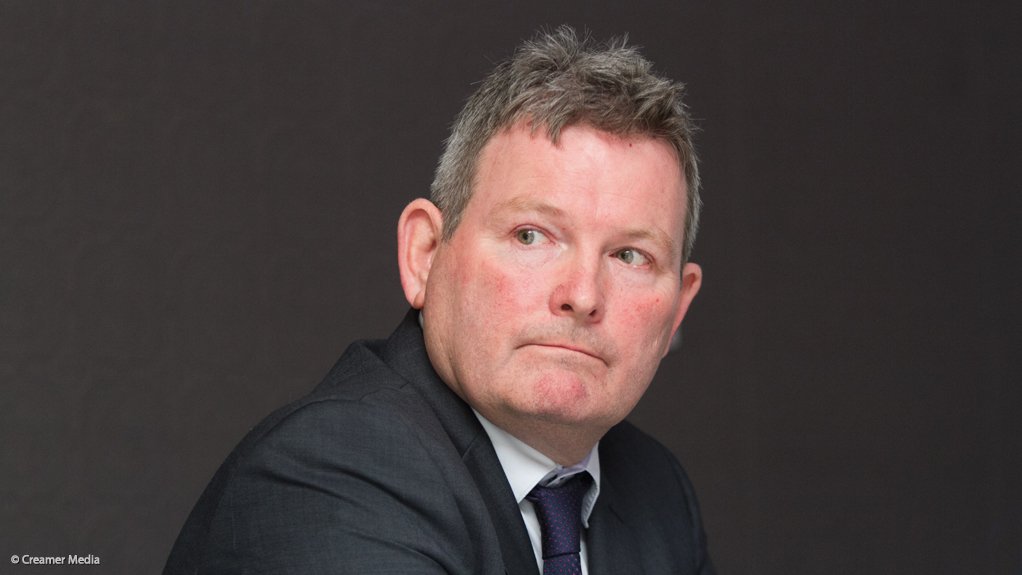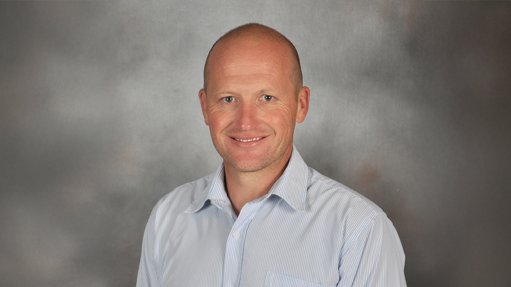Internal combustion engines are not going anywhere, says Northam’s Dunne
Platinum group metals (PGM) miner Northam Platinum CEO Paul Dunne firmly believes internal combustion engines (ICEs) are here to stay for the foreseeable future, which, in his view, will mean salvation for PGM miners that are struggling to remain profitable amid sustained low commodity prices.
“The world is getting over the love affair with electric vehicles. There's no question about that. It certainly will not be a replacement for the ICE. However, it's capturing some market share, but ICEs will have a longer life and the lower metal requirement will be balanced by natural depletion,” he said at the PGMs Industry Day, in Johannesburg, earlier this week.
He explained that the automotive market remained the most important market for PGM producers.
“If the economics are what they are today, the natural economic depletion will be accelerated by an economic overlay. That's what we expect to happen. So the market will be rebalanced on supply. We haven't lost the PGM market,” he said.
He noted that continued production was clearly not sustainable at current prices and that, eventually, either supply or price would have to cave.
“You can't have both. You can't have this rand basket price and this production. They will not equate. Something has to give.
“Two things can happen to correct this imbalance. One is that production comes off or, two, prices recover. There may be some sort of combination in-between,” he posited.
However, he noted that the problem was too big to be solved by simply “squeezing the lemon” and structural change was needed.
“We acknowledge there has been structural change in China, which remained quite closed for a long time. When we finally got there, we were quite shocked at the developments in China in terms of what is happening in the automotive industry. They're going to be highly competitive against the rest of the world,” Dunne said.
He said Western car manufacturers and joint ventures were already suffering in terms of market share, as China has begun to export its cars, as has already been seen in South Africa.
“I think you'll see more and more Chinese brands. They're at a reasonable quality and a very attractive price point. This presents a great challenge to the traditional North American, and more so European original-equipment manufacturers in the automotive industry. We see a threat to the traditional structure of the overall automotive industry,” Dunne explained.
He noted that, of the PGMs, palladium was most under pressure from a fundamentals point of view. However, while palladium appears to be performing weaker than other PGMs, the recent shortage of the metal means that there is no legacy stock.
“It also has a big short position sitting against it, which is somewhat positive, so palladium can recover. However, in the longer term, we think palladium is under a lot of fundamental pressure,” Dunne said.
On the other hand, however, he expected platinum to be the PGM that could be the saving grace for PGM miners.
“Platinum can actually solve this problem for the miners. Otherwise, supply must come off. I've got no doubt. A supply drop-off is effectively already happening. It's been happening for years,” Dunne said, noting that South Africa produced about 5.5-million ounces of platinum at one stage and that current forecasts are for production to only reach about three-million ounces this year.
“The capacity of the orebodies in the country to produce has been eroded through a combination of lack of investment, reinvestment and natural depletion,” Dunne said.
He said he believed in the importance of PGMs and urged industry players to work together to rebalance the market to ensure its survival.
“These are really important metals. They are really special in terms of what they do. In many applications across the world, they are essential for human existence. We've got an industry. We've got a market. We need to rebalance our efforts against the future market and that we will do as a collective,” he stressed.
Article Enquiry
Email Article
Save Article
Feedback
To advertise email advertising@creamermedia.co.za or click here
Announcements
What's On
Subscribe to improve your user experience...
Option 1 (equivalent of R125 a month):
Receive a weekly copy of Creamer Media's Engineering News & Mining Weekly magazine
(print copy for those in South Africa and e-magazine for those outside of South Africa)
Receive daily email newsletters
Access to full search results
Access archive of magazine back copies
Access to Projects in Progress
Access to ONE Research Report of your choice in PDF format
Option 2 (equivalent of R375 a month):
All benefits from Option 1
PLUS
Access to Creamer Media's Research Channel Africa for ALL Research Reports, in PDF format, on various industrial and mining sectors
including Electricity; Water; Energy Transition; Hydrogen; Roads, Rail and Ports; Coal; Gold; Platinum; Battery Metals; etc.
Already a subscriber?
Forgotten your password?
Receive weekly copy of Creamer Media's Engineering News & Mining Weekly magazine (print copy for those in South Africa and e-magazine for those outside of South Africa)
➕
Recieve daily email newsletters
➕
Access to full search results
➕
Access archive of magazine back copies
➕
Access to Projects in Progress
➕
Access to ONE Research Report of your choice in PDF format
RESEARCH CHANNEL AFRICA
R4500 (equivalent of R375 a month)
SUBSCRIBEAll benefits from Option 1
➕
Access to Creamer Media's Research Channel Africa for ALL Research Reports on various industrial and mining sectors, in PDF format, including on:
Electricity
➕
Water
➕
Energy Transition
➕
Hydrogen
➕
Roads, Rail and Ports
➕
Coal
➕
Gold
➕
Platinum
➕
Battery Metals
➕
etc.
Receive all benefits from Option 1 or Option 2 delivered to numerous people at your company
➕
Multiple User names and Passwords for simultaneous log-ins
➕
Intranet integration access to all in your organisation





















